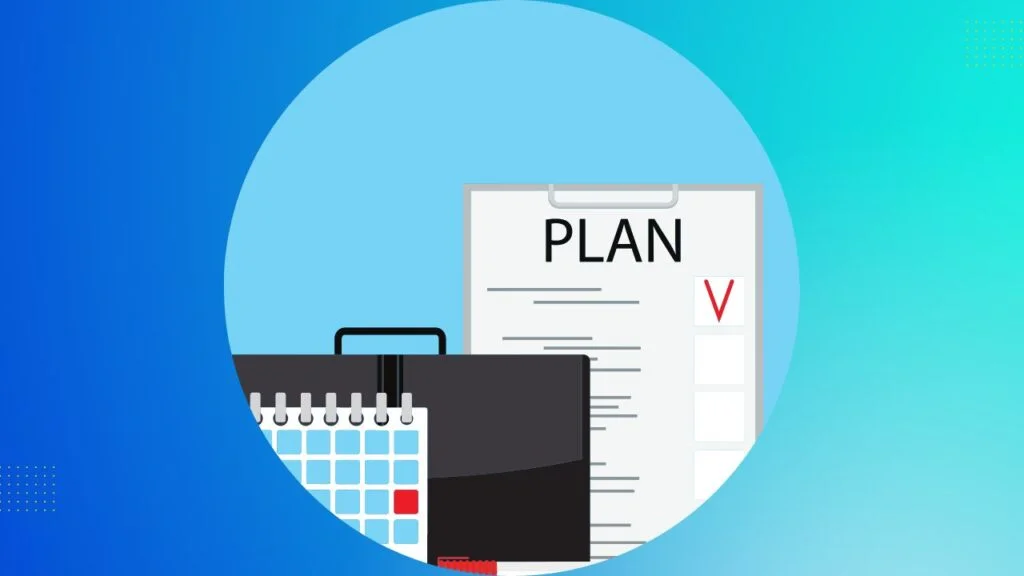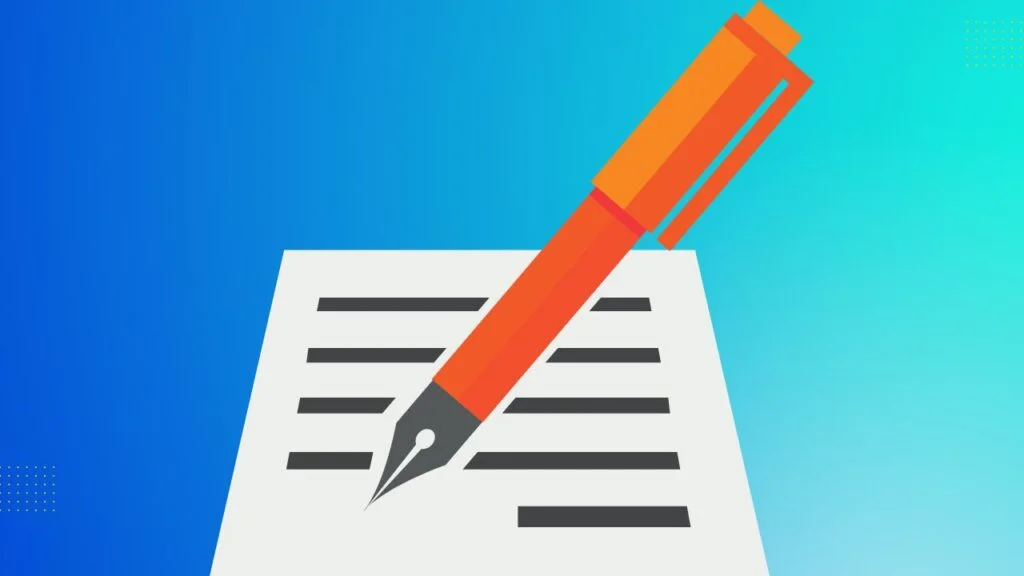Have you ever thought about what would happen to your assets and wealth after you pass away?
If you haven’t, you’re not alone.
A recent survey conducted by Caring.com showed that only 32% of millennials have a will, and even fewer have a comprehensive estate plan in place.
But here’s the thing, estate planning isn’t just for the elderly or the wealthy.
It’s for anyone who wants to ensure that their assets and wealth are protected and distributed according to their wishes.
Estate planning is the smartest financial decision you’ll ever make.
Why do I say that?
Well, did you know that without an estate plan, your assets will likely go through probate, which can be a lengthy, costly, and stressful process for your loved ones?
Did you know that having an estate plan can protect your assets from creditors and legal disputes?
And did you know that estate planning can also include important documents like healthcare directives and guardianship arrangements for minor children?
In this article, we’ll explore the importance of estate planning for millennials, why you need it, and how to create an estate plan that works for you.
So, let’s get started and take the first step toward securing your financial future.
1. Understanding Estate Planning

Estate planning is the process of preparing for the transfer of an individual’s assets and wealth after their death.
It involves creating a plan that outlines how your assets will be distributed, who will inherit them, and who will manage your affairs after your death.
Estate planning is not just about distributing your assets, it also includes important documents like healthcare directives, powers of attorney, and guardianship arrangements for minor children.
To put it simply, estate planning is about making sure that your assets and wealth are protected and distributed according to your wishes after you pass away.
1.1 Who needs estate planning?
Many people believe that estate planning is only necessary for the wealthy or the elderly.
However, that couldn’t be further from the truth.
Estate planning is important for anyone who wants to ensure that their assets and wealth are protected and distributed according to their wishes.
If you’re a millennial, you might not think that estate planning is a priority for you.
But consider this: you have likely accumulated some assets and wealth already, and you want to make sure that they go to the right people if something were to happen to you.
Moreover, if you have children or dependents, you want to make sure that they are taken care of if something happens to you.
So, if you own any assets, have any dependents, or want to have control over who inherits your assets after you pass away, then you need estate planning.
1.2 What does estate planning involve?
Estate planning involves several different components, including:
- Will and Trusts: A will is a legal document that outlines how your assets will be distributed after your death. A trust is a legal entity that holds your assets and distributes them according to your instructions.
- Healthcare Directives: A healthcare directive is a document that outlines your wishes for medical treatment in case you become unable to make decisions for yourself. It can also appoint someone to make medical decisions on your behalf.
- Powers of Attorney: A power of attorney is a legal document that appoints someone to make financial or legal decisions on your behalf if you become incapacitated.
- Guardianship Arrangements: If you have minor children or dependents, you can use estate planning to appoint a guardian who will take care of them if something happens to you.
- Digital Assets: In today’s digital age, estate planning should also include provisions for your digital assets, such as social media accounts, online banking, and email accounts.
It’s important to work with an experienced estate planning attorney who can help you create a comprehensive estate plan that meets your needs and ensures that your assets are protected and distributed according to your wishes.
2. The Benefits of Estate Planning

2.1 Avoiding Probate
Probate is a legal process that occurs after someone passes away.
It involves validating the deceased’s will, paying off debts and taxes, and distributing the remaining assets to the beneficiaries.
Probate can take months or even years to complete, and it can be expensive due to court fees, attorney fees, and other costs.
2.1.1 The Cost and Time Associated with Probate
Probate can be an expensive and time-consuming process.
The cost of probate can vary depending on the size of the estate and the complexity of the process.
In general, the cost of probate can range from 3-7% of the total estate value.
The time required to complete probate can also vary, but it typically takes several months to a year or more.
During this time, the assets of the deceased are frozen, which can create financial difficulties for the beneficiaries.
However, by creating an estate plan, you can avoid probate altogether.
This can save your beneficiaries time and money, as well as prevent the court from making decisions about how your assets are distributed.
2.2 Protecting Your Family and Assets
Estate planning can also help protect your family and assets.
For example, if you have minor children, you can use estate planning to appoint a guardian who will take care of them if something happens to you.
This ensures that your children will be cared for by someone you trust, and it can prevent custody battles among family members.
Estate planning can also help protect your assets from creditors and lawsuits.
By creating a trust, you can transfer your assets to the trust, which will protect them from creditors and lawsuits.
This can be especially important if you own a business or have a high net worth.
2.3 Minimizing Taxes
Estate planning can also help minimize taxes.
For example, if you have a large estate, you may be subject to estate taxes.
However, by creating an estate plan that includes trusts and other tax planning strategies, you can minimize the amount of taxes your estate will have to pay.
Additionally, estate planning can also help minimize income taxes.
By creating a trust, you can distribute your assets in a way that minimizes income taxes for your beneficiaries.
Overall, estate planning is an important financial decision that can have many benefits for you and your family.
By avoiding probate, protecting your family and assets, and minimizing taxes, you can ensure that your assets are distributed according to your wishes and that your family is taken care of after you pass away.
2.4 Ensuring Your Wishes Are Carried Out
2.4.1 The Importance of Having a Will
Having a will is a crucial part of estate planning.
A will is a legal document that outlines how you want your assets to be distributed after you pass away.
It allows you to name beneficiaries and specify how your assets should be divided among them.
If you don’t have a will, your assets will be distributed according to the laws of your state, which may not align with your wishes.
In addition to outlining how your assets should be distributed, a will also allows you to name an executor who will be responsible for managing your estate after you pass away.
This can include paying off debts, distributing assets, and handling any other financial matters related to your estate.
2.4.2 Trusts and Their Benefits
In addition to a will, trusts can also be a valuable tool for estate planning.
A trust is a legal arrangement where you transfer your assets to a trustee, who manages the assets on behalf of your beneficiaries.
There are several types of trusts, each with its benefits:
- Living Trust: A living trust is created during your lifetime and can help you avoid probate. It allows you to retain control over your assets while you’re alive, and then transfer them to your beneficiaries after you pass away.
- Testamentary Trust: A testamentary trust is created as part of your will and only goes into effect after you pass away. It can be used to manage assets for minor children or beneficiaries who are not capable of managing their finances.
- Irrevocable Trust: An irrevocable trust cannot be changed or revoked once it’s created. It can be used to protect your assets from creditors and lawsuits, as well as to minimize taxes.
Overall, trusts can provide several benefits for estate planning, including avoiding probate, protecting assets, and minimizing taxes.
However, they can also be complex and require the assistance of an attorney or financial advisor to set up properly.
3. Estate Planning for Millennials

3.1 Why Millennials Need Estate Planning
Estate planning is not just for older individuals or those with significant wealth.
Millennials also need to consider estate planning as part of their financial strategy.
Here are a few reasons why:
- Protecting Minor Children: If you have children under the age of 18, estate planning is especially important. A will can help ensure that your children are taken care of by a guardian of your choosing and that their inheritance is managed properly.
- Avoiding Family Disputes: Without clear instructions on how your assets should be distributed, there may be disputes among family members after you pass away. Estate planning can help avoid these conflicts and provide peace of mind for your loved ones.
- Managing Digital Assets: Millennials tend to have a significant online presence, with social media accounts, email addresses, and other digital assets. Estate planning can include provisions for managing and distributing these assets after you pass away.
3.2 The Common Misconceptions about Estate Planning for Millennials
Despite the importance of estate planning, several misconceptions may prevent millennials from taking action.
Here are a few common myths about estate planning for millennials:
- “I’m too young to worry about estate planning.” Estate planning is not just for older individuals. Unexpected accidents and illnesses can happen at any age, so it’s important to have a plan in place.
- “I don’t have enough assets to worry about estate planning.” Even if you don’t have significant wealth, estate planning can still be important for managing assets and ensuring that your wishes are carried out.
- “Estate planning is too expensive.” While there may be some costs associated with estate planning, the benefits can far outweigh the expenses. Plus, there are many resources available to help make estate planning more affordable, such as online will-making tools.
- “I don’t know where to start with estate planning.” Starting the estate planning process can be overwhelming, but there are many resources available to help. An attorney or financial advisor can provide guidance and support throughout the process.
Overall, millennials should not overlook the importance of estate planning.
By taking action now, you can ensure that your loved ones are taken care of after you pass away and that your assets are distributed according to your wishes.
3.3 What Millennials Should Consider When Creating an Estate Plan
3.3.1 Digital assets
With the rise of technology, digital assets have become an increasingly important aspect of estate planning.
Digital assets can include anything from social media accounts to online banking, cryptocurrency, and more.
It is essential to create a comprehensive list of all your digital assets, including usernames and passwords, and appoint a digital executor who can access these assets and distribute them according to your wishes.
3.3.2 Guardianship of minor children
If you have minor children, appointing a guardian is a crucial aspect of your estate plan.
Without a designated guardian, the court will decide who will take care of your children, which may not align with your wishes.
You should carefully consider who would be the best guardian for your children and make sure to discuss your decision with them beforehand.
3.3.3 Healthcare directives
Healthcare directives, also known as advance directives, are legal documents that outline your medical preferences in case you become unable to make decisions for yourself.
These documents include a living will and a healthcare power of attorney.
A living will outline your end-of-life preferences, such as whether you want life-sustaining treatment.
A healthcare power of attorney appoints someone to make medical decisions on your behalf if you become incapacitated.
Creating an estate plan can seem overwhelming, but it is essential for everyone, including millennials.
By considering your digital assets, guardianship of minor children, and healthcare directives, you can ensure that your wishes are carried out and your loved ones are taken care of in the event of your death or incapacity.
4. Creating an Estate Plan

4.1 Finding the right attorney
Finding the right attorney to assist you in creating an estate plan is an important decision.
You want an attorney who is experienced in estate planning and understands your specific needs and goals.
Here are some tips for finding the right attorney:
- Ask for referrals from friends, family, or other professionals such as financial advisors or accountants.
- Research potential attorneys online and read reviews from past clients.
- Schedule a consultation to discuss your needs and goals and see if the attorney is a good fit for you.
4.2 What to Expect during the estate planning process
The estate planning process typically involves the following steps:
- Initial consultation: During the initial consultation, you will discuss your goals and needs with your attorney and provide information about your assets and liabilities.
- Drafting the estate plan: Your attorney will draft a customized estate plan based on your goals and needs. This may include a will, trust, healthcare directives, and power of attorney documents.
- Review and revision: Once the estate plan is drafted, you will review it with your attorney and make any necessary revisions.
- Signing the estate plan: After any revisions have been made, you will sign the estate plan in the presence of witnesses and a notary public.
4.3 Reviewing and updating your estate plan
It’s important to review and update your estate plan periodically, especially after major life events such as marriage, divorce, the birth of a child, or the acquisition of new assets.
Here are some things to consider when reviewing and updating your estate plan:
- Changes in family circumstances: If you have a new child or a change in marital status, you may need to update your estate plan to reflect these changes.
- Changes in assets: If you acquire new assets or sell assets, you may need to update your estate plan to reflect these changes.
- Changes in the law: Tax laws and estate planning laws can change over time, so it’s important to review your estate plan periodically to ensure that it remains up-to-date and compliant with current laws.
Bottom Line…
As a millennial, you may think that estate planning is something that only older people need to worry about, but that couldn’t be further from the truth.
Creating an estate plan is one of the smartest financial decisions you’ll ever make, regardless of your age or financial status.
Consider the following statistics: A recent survey found that only 40% of adults in the US have a will or estate plan in place, and among millennials, that number drops to just 22%.
This means that the majority of people are leaving their families vulnerable to financial and legal complications after their passing.
By creating an estate plan, you can protect your loved ones and ensure that your assets are distributed according to your wishes.
You can also avoid the costly and time-consuming probate process, and have peace of mind knowing that your affairs are in order.
So, don’t wait any longer. If you haven’t already, start the estate planning process today.
Find a reputable attorney, consider all aspects of your estate, and make sure to review and update your plan as necessary.
Your future self, and your loved ones, will thank you for it.
